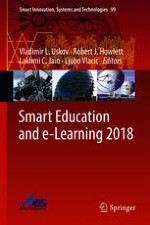2019 | OriginalPaper | Chapter
Automation System of Intellectual Activity on Creating Programs in the Language of Logical Programming
Authors : Marina V. Lapenok, Olga M. Patrusheva, Galina V. Pokhodzey, Anastasiya I. Suetina, Anna M. Lozinskaya, Irina V. Rozhina
Published in: Smart Education and e-Learning 2018
Publisher: Springer International Publishing
Activate our intelligent search to find suitable subject content or patents.
Select sections of text to find matching patents with Artificial Intelligence. powered by
Select sections of text to find additional relevant content using AI-assisted search. powered by
